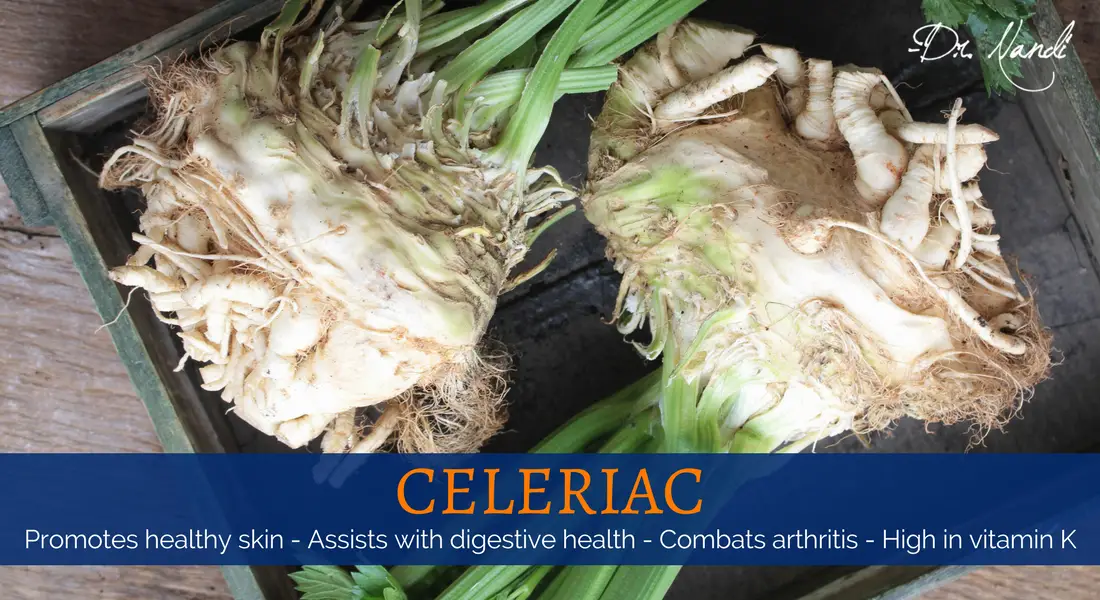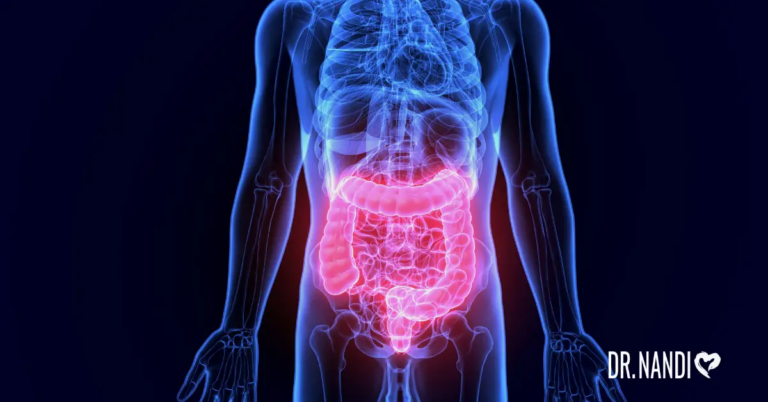High in Vitamin K
Celeriac has about 34% of the recommended daily amount of vitamin K. Vitamin K boosts bone mineralization by encouraging bone growth. Research studies suggest that it also has an established role in Alzheimer’s disease patients by limiting neuronal damage in the brain.
Assists With Digestive Health
Celeriac contains fiber which is essential for better digestive health. Celeriac includes both soluble and insoluble fiber. Soluble fiber is known to form a gel-like substance in the gut that is a source of nutrients for the good digestive bacteria. Soluble fiber may decrease spikes in blood sugar and help to control cholesterol levels. Insoluble fiber adds bulk to fecal matter and aids in passing food and waste through the gut. Insoluble fiber is known to help decrease the risk of diabetes.
Promotes Healthy Skin
Celeriac has vitamin B5, which is known as pantothenic acid. Pantothenic acid acts as a moisturizer and helps to keep skin soft, smooth, and healthy. Pantothenic acid encourages the skin’s healing process by acting as an anti-inflammatory. It is very hydrating and helps to keep skin moist simply by absorbing moisture from the air. Vitamin B5 is a water-soluble vitamin that cannot be stored in the body.
Combates Arthritis
Celeriac is an excellent source of copper and potassium. Both minerals are essential in preventing arthritis. Copper has been found to have an anti-inflammatory capability which helps to relieve the pain associated with arthritis. Copper can help with muscular strength, reduce joint pain, and repair connective tissue. Potassium is an essential mineral and is responsible for the function of all cells, tissues, and organs in your body. Potassium is vital for skeletal and smooth muscle contractions.
Heart Health
Celeriac contains an organic compound called phthalides which act to lower the level of stress hormones in the body. Studies have found that phthalides relax smooth muscles, allowing the blood vessels to expand. It creates more space and lowers blood pressure. It naturally reduces the chances of related cardiovascular diseases such as atherosclerosis, heart attacks, and strokes.



















